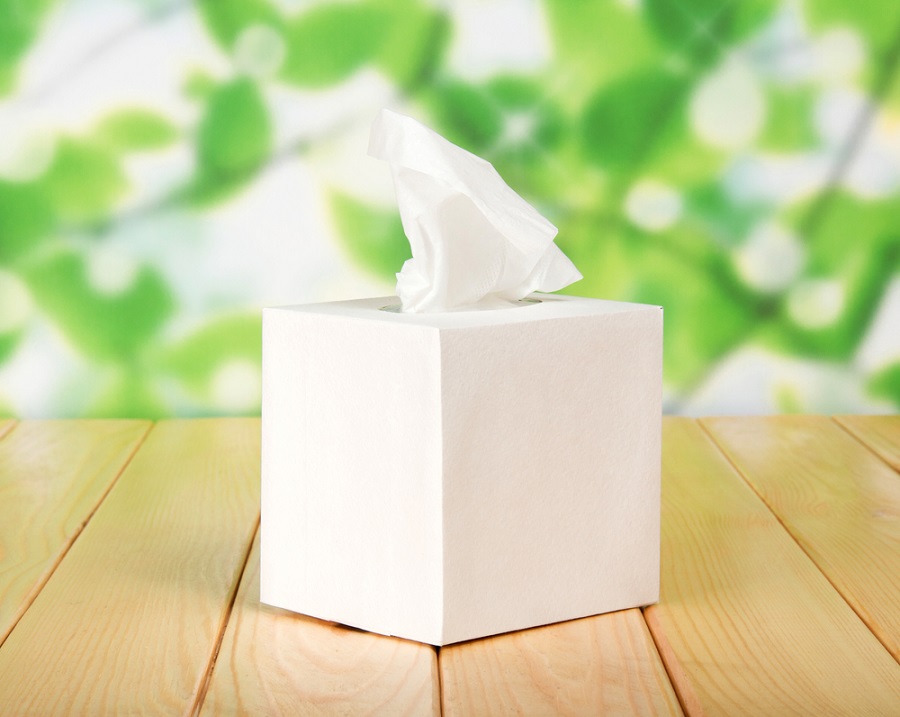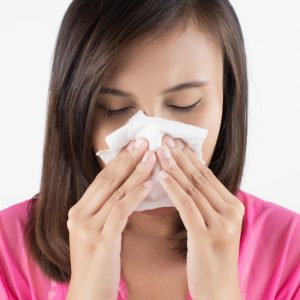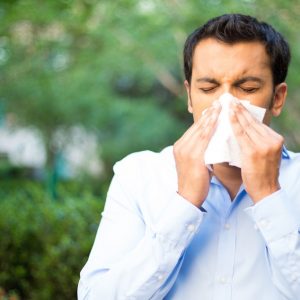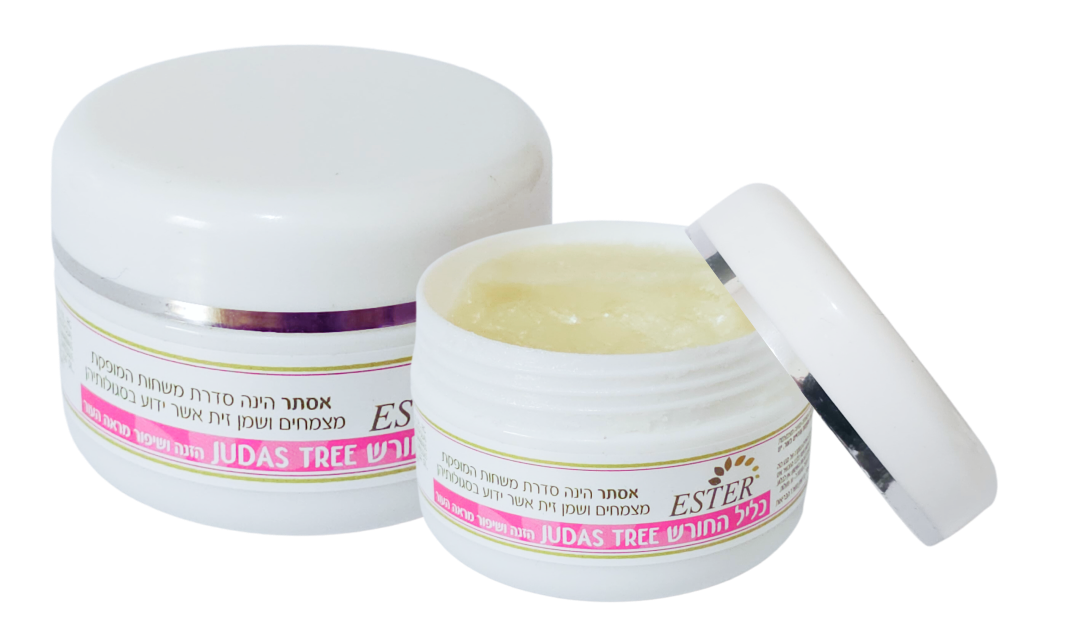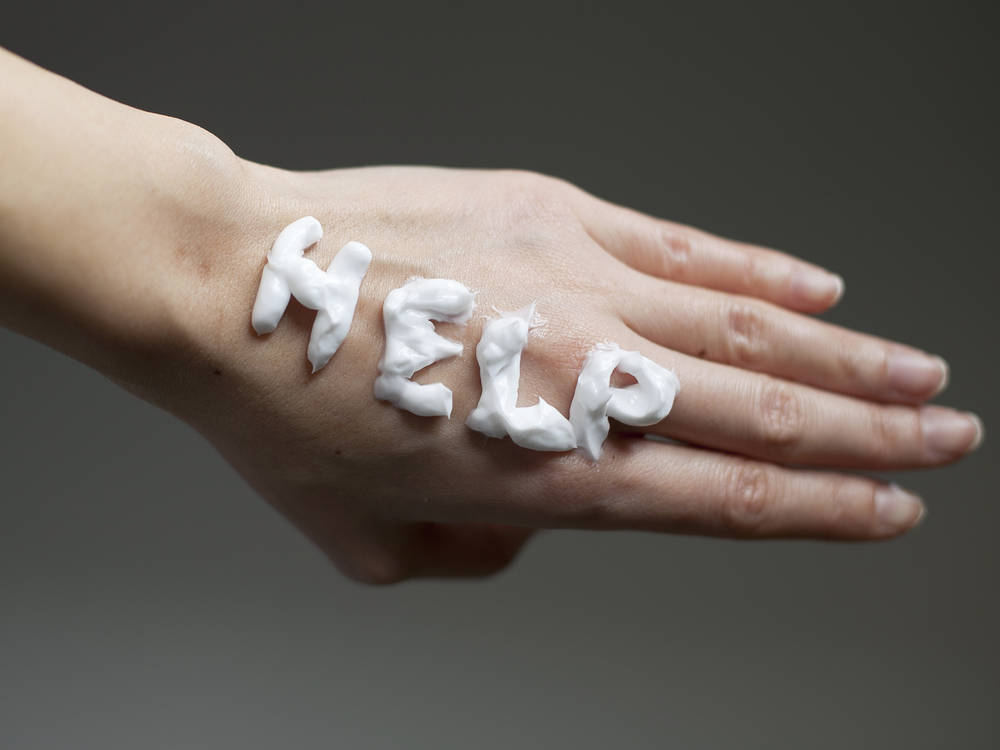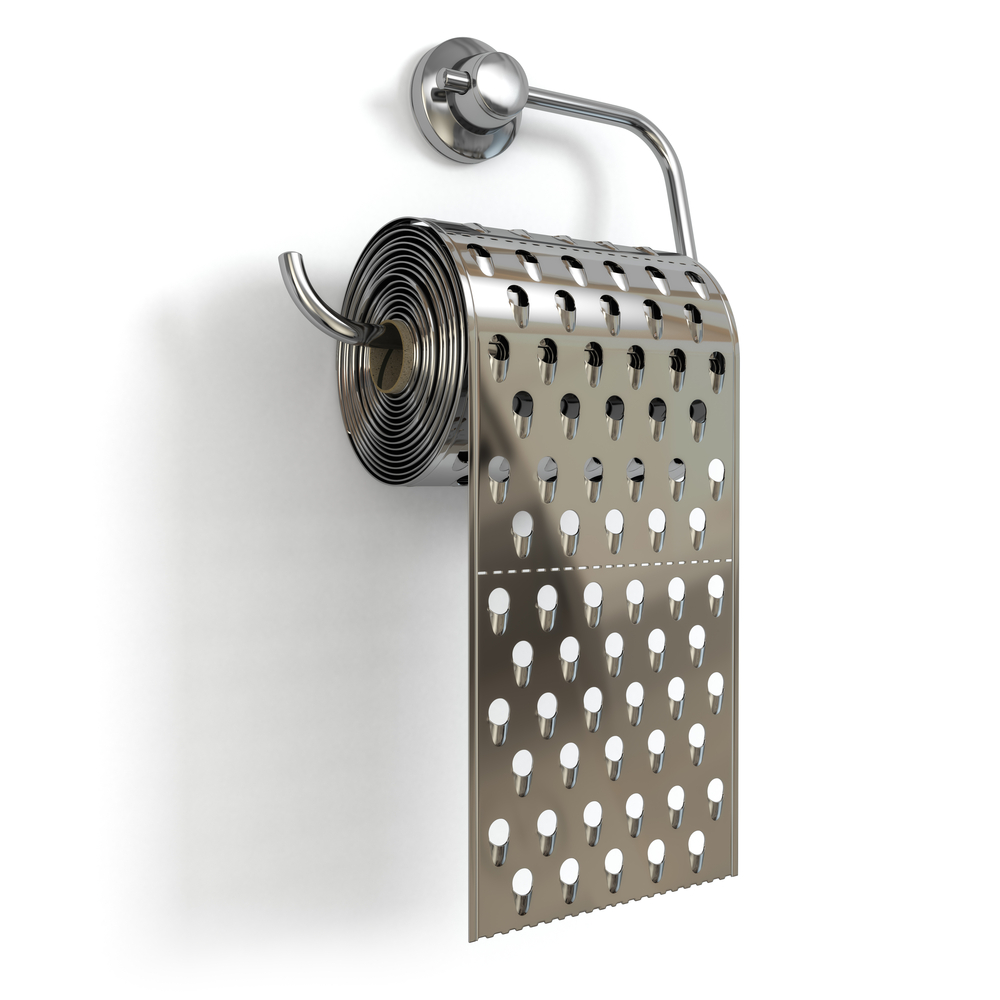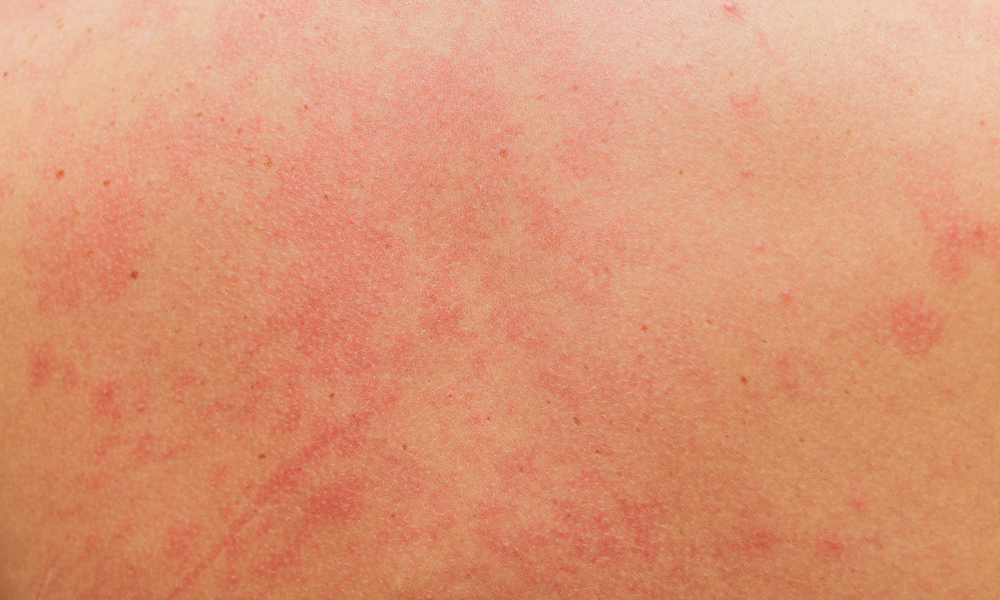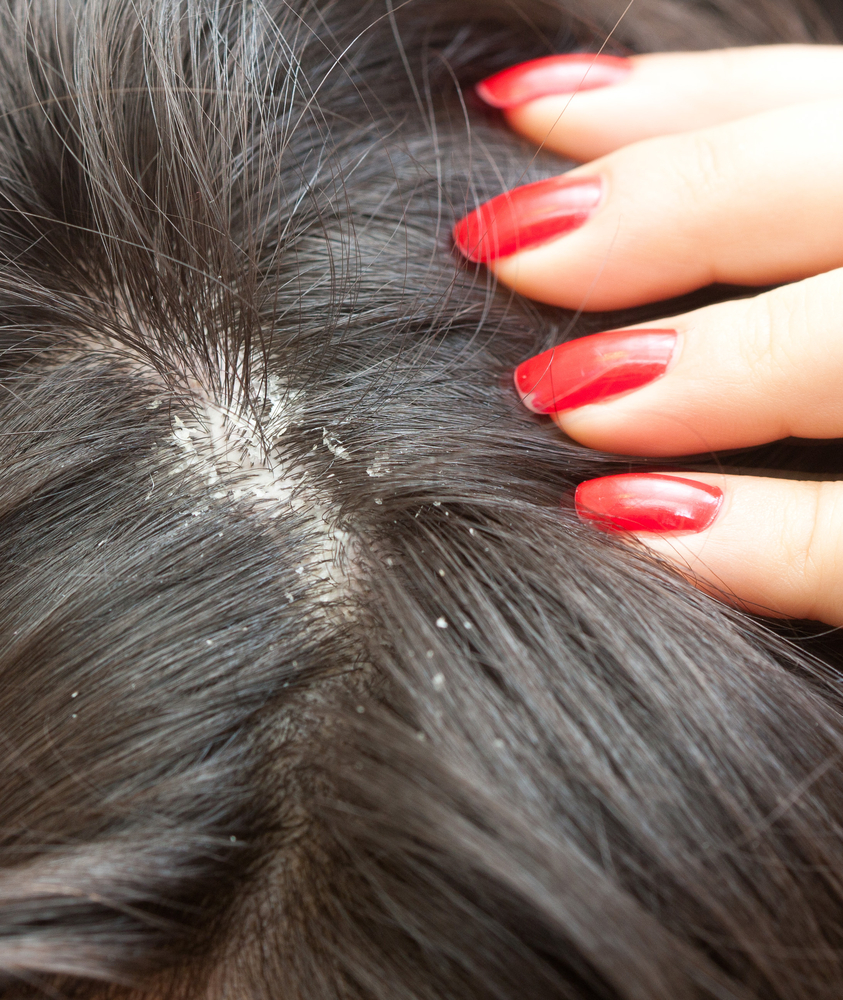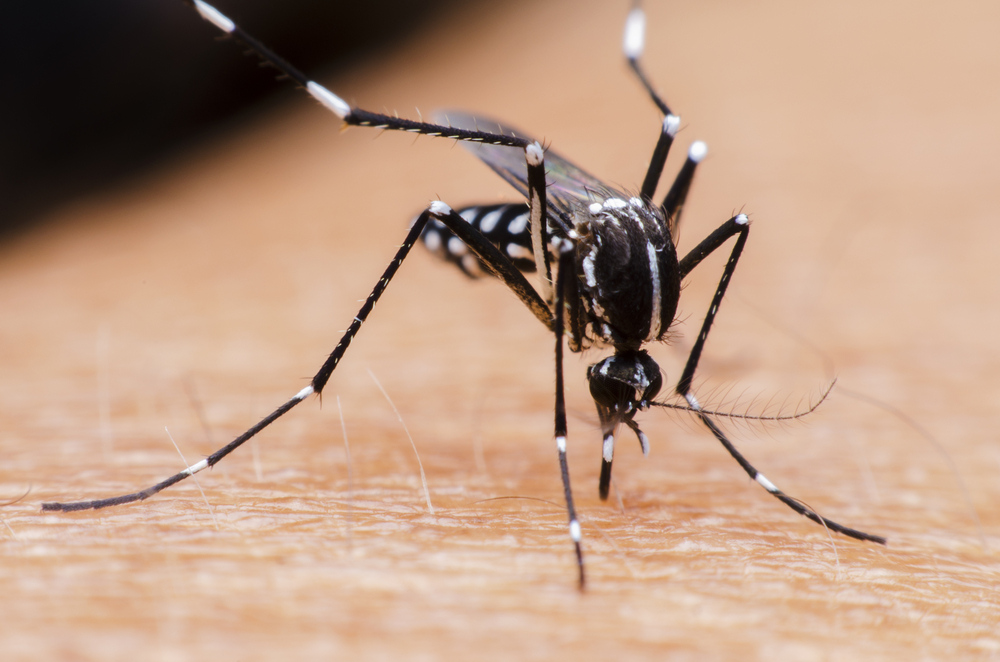Common Types of Nasal Discharge:
- Green Mucus: Thick, green mucus is usually a sign of a bacterial or infectious illness, unlike clear nasal discharge which may come from allergies or a viral cold.
- Yellow Mucus: Like green mucus, this is often a sign of infection, but may appear earlier in the illness.
- Allergic Rhinitis: Common among people with asthma or atopic dermatitis. It often comes with itchy throat, sneezing, eye irritation, and can continue even after exposure to the allergen ends. In more persistent cases, allergy shots may be recommended.
- Chronic Runny Nose: A treatable condition, although not always fully curable. Nasal sprays and sometimes allergy vaccines or surgery may be part of the long-term treatment.
What Is Blood in Nasal Mucus?
Sometimes, blood may appear in the mucus, due to nose picking, blowing the nose too hard, or injury. It can also be caused by nasal polyps. Usually, the bleeding stops on its own, but if there is heavy or continuous bleeding, it’s important to see a doctor.
How to Treat a Runny Nose?
Anyone with a runny nose is likely to seek relief. Both conventional and alternative medicine offer many solutions. Treatment depends on the underlying cause and may include:
- Nasal sprays and drops to reduce congestion
- Decongestants to reduce mucus production
- Saline rinses to flush the nasal cavity
Treatment should be determined by a doctor following diagnosis.
Treating Runny Nose in Babies
Runny nose in infants can interfere with eating and breathing. Common treatments include saline sprays and, if necessary, medications prescribed by a pediatrician to reduce nasal congestion.
Treating Chronic Runny Nose
Chronic nasal discharge can often be managed, though not always completely cured. It may return after treatment. Recommended treatments include nasal sprays, medications, and in some cases, surgery.
Treating Allergic Rhinitis
Overcoming allergic rhinitis is challenging. The first step is to identify and avoid allergens. But even after stopping exposure, the symptoms may persist. In such cases, nasal drops and sprays can help. Allergy vaccines are also an option.
Medications for Runny Nose
There are a variety of medications that can relieve nasal symptoms:
- Saline nasal sprays to rinse and clear the nose
- Nasal drops with decongestants to reduce swelling
- Oral medications (pills) to dry up excess mucus
It’s important to follow dosage instructions, as overuse can worsen the condition.
Cold Medications
Colds often come with runny nose, congestion, fever, and headaches. Over-the-counter fever reducers and pain relievers can improve symptoms and help you function during the illness. If excess mucus is the main issue, specific decongestants may be prescribed in spray, drop, or pill form.
Natural Remedies for a Runny Nose
Looking for a natural remedy? Try:
- Smelling a freshly cut onion to open the airways
- Inhaling steam from a hot shower or bowl of water
- Herbal teas (e.g., chamomile, mint) to ease symptoms
Judas Tree Ointment
This natural ointment helps soothe skin irritation caused by frequent nose blowing and calms the surrounding skin.
Examples
